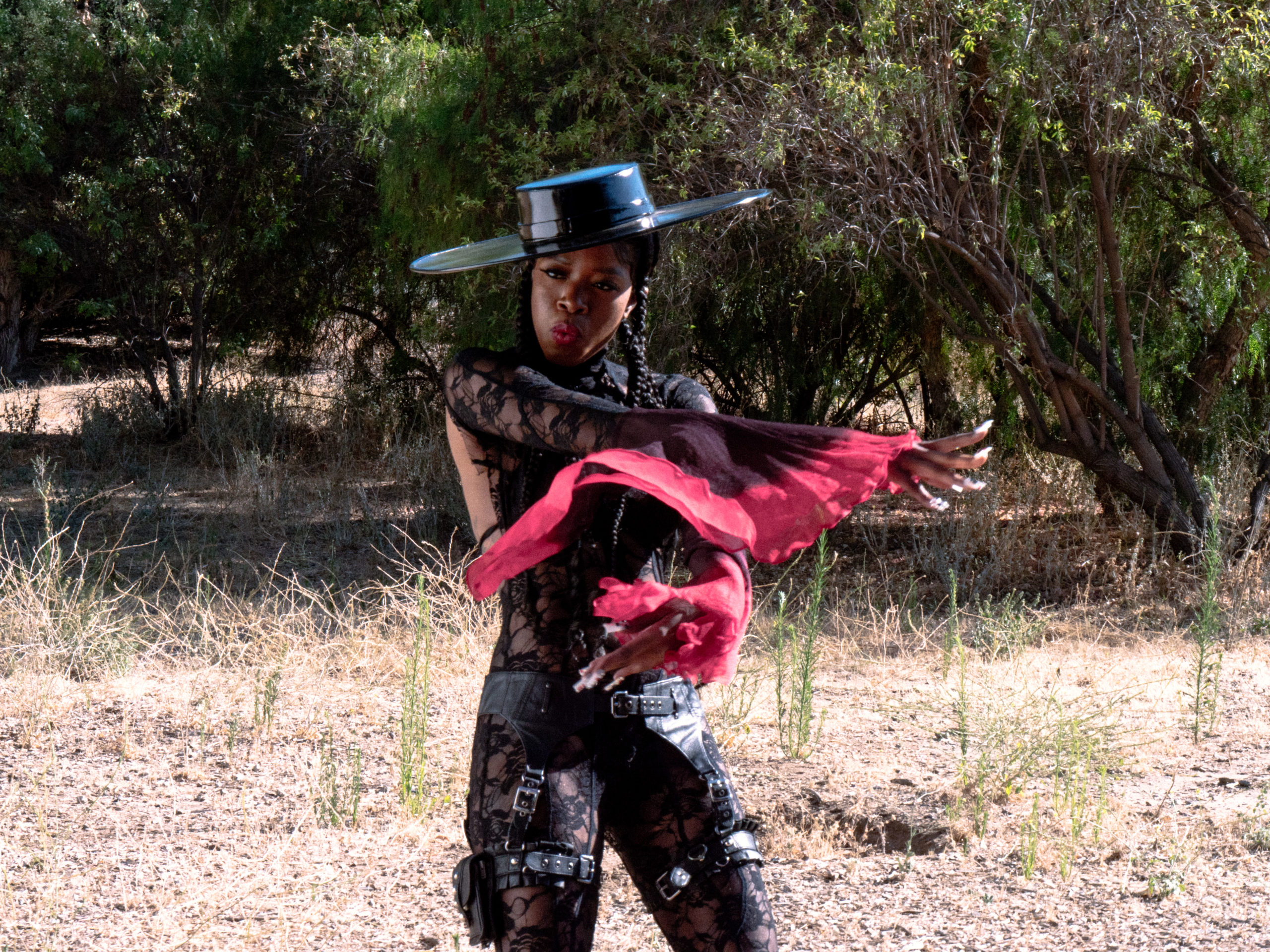
Irvington, New Jersey native Cookiee Kawaii blew up last summer for the release of “Vibe (If I Back It Up,)” a dance anthem that made rounds on TikTok. After months of viral success, the club queen decided to share an out of this world clip for the song.
If you’re a fan of fellow surrealist queens like Missy Elliott and Azealia Banks, you’ll love the “Vibe” video. It begins with Cookie in a phone booth as birds swirl around her (seemingly a nod to Alfred Hitchcock’s 1963 film ‘The Birds’) and cuts to her and a crew of dancers in the Wild West. Cookiee then morphs into an alien, a marching band leader, a six-legged creature and more.
“The ‘Vibe’ video has a lot of elements that only touch the surface of who Cookiee Kawaii is,” the artist said in a press release. “From the Cowboy scene, which has a ‘Django’/Red Dead Redemption vibes, to being in space, even my own ninja clan; every element of the video was super fun [and] out of the box. My favorite scene was the rock ya hips portion at the end. Most people know I am from Jersey so getting to incorporate that dance was important to me.”
We’re excited to see more from Cookiee and she’s just as thrilled to share. “Overall I can’t wait to get started on more visuals in the future,” she said.
Watch “Vibe (If I Back It Up) below.
Photo credit: Empire/The Cookiee Jar